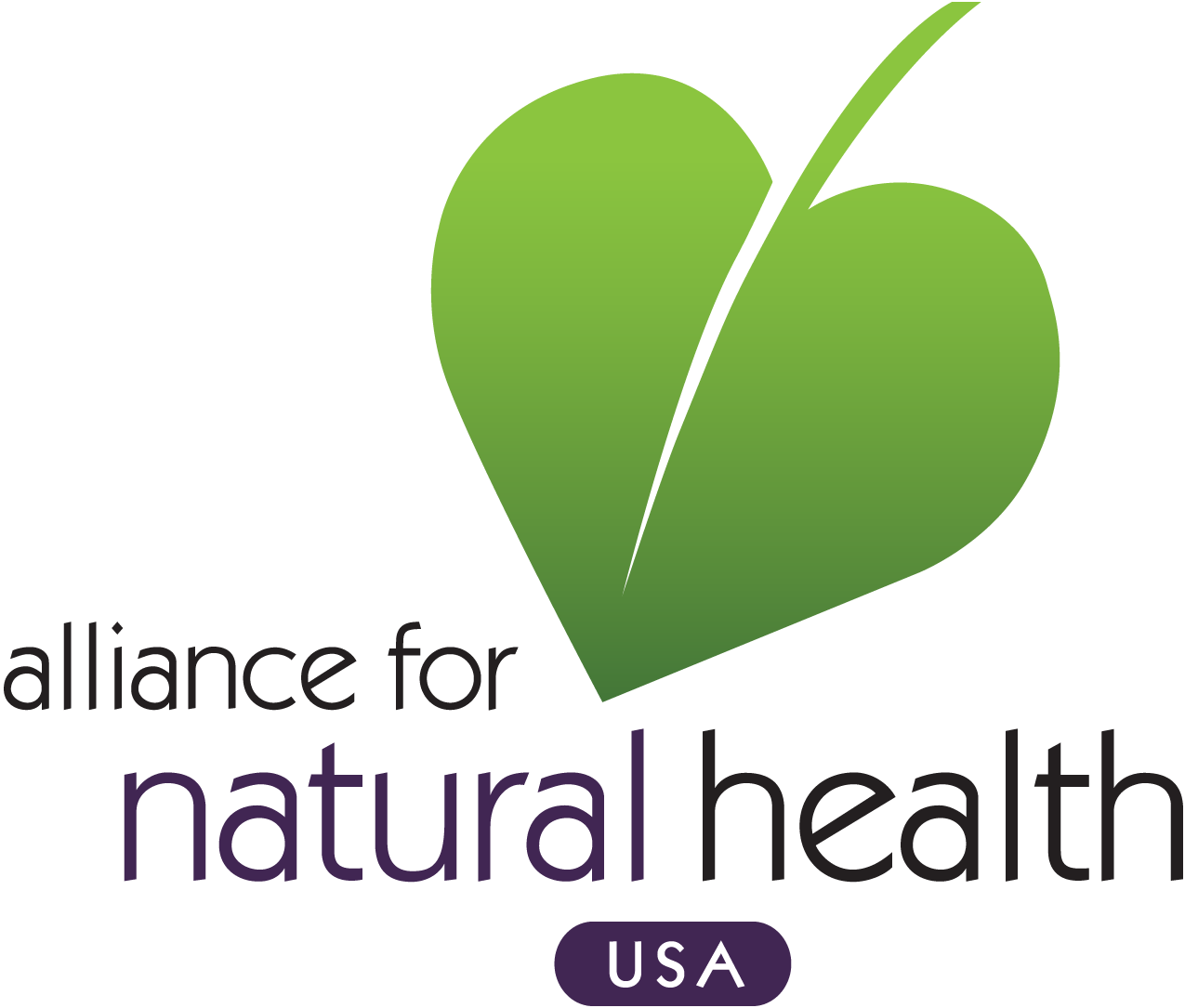
Gretchen DuBeau, Esq.
Executive Director
Alliance for Natural Health, USA

The Alliance for Natural Health USA (ANH-USA) is committed to sustainable health, the recognition that true health requires a proactive and preventive approach that focuses on a nutrient-rich diet, proper supplementation, and limiting our exposure to toxic substances. A system that is single-mindedly focused on “treating” sick people with expensive drugs, rather than maintaining healthy people, is neither practical nor economically sustainable.
ANH-USA is part of an international organization dedicated to promoting natural and sustainable health—and, in particular, consumer freedom of choice in healthcare—through good science and good law.
By Gretchen DuBeau, Esq
I first learned of Sylvie Beljanski’s work, and the work of her father Mirko Beljanski, PhD, when the Beljanski Foundation reached out to the Alliance for Natural Health USA, where I have served as the executive director for almost 10 years. We were lobbying at the time to pass legislation that would have made it legal to share information about the health benefits of natural foods and dietary supplements when that information is supported by peer reviewed, scientific studies. Sylvie was interested in supporting our efforts, because she shares my concern that the public cannot legally learn about the empirically proven benefits of natural remedies. Unfortunately this limited access to natural healing options isn’t the exception to the rule. Generally the laws are stacked against those who wish to use natural medicine to maintain optimal health.
Having worked on Capitol Hill for more than a dozen years, I have seen things that make me wish, at times, for blissful ignorance. The stories about “horse trading” – Congressional support for legislation in exchange for reciprocal concessions, rather than to further the public interest – are true. Many of our laws aren’t designed for your benefit or mine. Rather, they are architected by the companies and special interests who desire more control over the regulatory environment that impacts their bottom line. This happens in all sectors, but my area of expertise is in nature, which doesn’t play by industry’s rules.
Think about it. We don’t own nature. For example, no one owns all of the aloe vera plants. Anyone can grow aloe vera, and anyone can sell the aloe vera that they have grown. And you and I can use that aloe vera to sooth sunburns or calm an upset stomach. By law, Mother Nature and her bountiful natural remedies cannot be patented. Period. Sure, recipes and delivery systems that are invented can be patented, and therefore owned, by the inventor. But for the most part, if it’s natural, it cannot be owned by one, because it already belongs to us all.
Now, pharmaceutical companies love synthetic medicines that they can patent, because synthetic ingredients are cheap to manufacture, and not only do the companies enjoy sole ownership, but the Food and Drug Administration (FDA), which regulates drugs, guarantees market exclusivity of these new, patented drugs for a period of five and a half years. This means no other drugs can be marketed if they would impact sales, but this doesn’t apply to natural remedies that are already being legally sold. What pharmaceutical companies don’t love is competition from natural medicines they cannot control or own, which can oftentimes work better than their synthetic drugs, and without the nasty side effects. So what do you think these companies might do in turn? That’s right, they lobby members of Congress.
They lobby to eliminate our ability to make meaningful choices about our own health and wellbeing by removing information, as well as the natural alternatives to pharmaceutical drugs themselves, from the marketplace. Surprisingly, it really is illegal for a supplement company, for example, to list the specific health benefits of their products on the label. They can provide general information about how nutrients affect the structure or function of the body, but they can’t tell you that cinnamon and bitter melon, for example, lower blood sugar. Why not, when countless diabetics would benefit from this information? It doesn’t make sense until you realize that, because it’s not a patented drug, it’s much, much less expensive. And if everyone knew there was an affordable, natural alterative to diabetes drugs, well, that market exclusivity would be meaningless as those wishing for a safer alternative would flock towards cinnamon, bitter melon, and the counltess other safer options to diabetes drugs.
Drug companies don’t just want to block the information we get about natural medicines; they want these products off of store shelves altogether. The end game for them is a preapproval system, where supplements have to go through the same steps that drugs do to get approved. Simply put, this would cost hundreds of millions of dollars for natural substances that, because they can’t be patented, don’t enjoy the same market protections synthetic drugs do. Dozens of companies make cinnamon supplements. How could any one of them afford to spend hundreds of millions of dollars for studies when they won’t recoup that investment on the other end? They can’t, and therefore such a requirement would be the end of these products. And drug companies know this.
Nevertheless there is concern that drugs may be a safer bet. But is this really true?
The FDA regulates both drugs and dietary supplements, including herbs like Beljanski’s Pao pereira and the Rauwolfia vomitoria extract. In fact, the FDA tracks adverse health events that are reported from consumers and patients who believe they were injured from taking both drugs and dietary supplements. In 2016, there were 8,536 dietary supplement adverse events reported to the FDA’s Center for Food Safety and Applied Nutrition’s Adverse Event Reporting System. That same year, there were 1,184,764 drug-related adverse events reported to the FDA.
Then there is the common sense test. Cinnamon is a food. I know dozens of integrative physicans who recommend it to their patients, because they have seen the benefits. In fact, a lot of this comes down to common sense.
I, like many people, found my way into the natural health world because of my own health struggles. I didn’t have cancer or AIDs. I had Hashimoto’s, an autoimmune thyroid disease, and profound endocrine and gastrointestinal dysfunction that destroyed my ability to function normally at age 31. After delivering my daughter, my body shut down in many ways, leaving me severly depressed, fatigued, and unable to digest the food I ate. I saw dozens of doctors who told me I should just take prescription drugs for the rest of my life, and there was nothing more they could do for me. I was told my condition was irreversible. But instead of giving up, I became my own advocate and learned everything there was to know about my health problems. I read over 100 books, attended alternative and complementary medical seminars, and started seeing integrative physicians who use both allopathic and alternative, natural approaches to medicine. It took several years, and it was the hardest thing I have ever done, but using foods and dietary supplements, I’m much, much better. I no longer have Hashimoto’s, and I function at about 90 percent on most days.
My common sense questions are: “Why did none of the initial doctors I saw – the ones my insurance company worked with – know how to help me?”, “Why did I literally have to go to medical seminars and go completely ‘outside’ of the medical system as we know it, to learn about the natural foods and supplements I needed to heal?” Twenty-seven million people in America have thyroid disease. Ninety percent of them have Hashimoto’s, the autoimmune disease I had. “How many of these people are struggling to get through the day, when they don’t have to, because their doctors also told them there was nothing more to be done to help them?” My last question is, “why in the world, when over half of all Americans are chronically ill and more than one in three will have cancer at some point in our lives, are we allowing our public and elected officials to work with pharmaceutical companies to limit access to the medicines that can actually reverse disease and restore wellbeing?”
The brilliant Mirko Beljanski, PhD, found miracles in nature – Pao pereira, a tree native to the Amazon, and Rauwolfia vomitoria, which is extracted from a root bark – that proved to heal countless patients from cancer and AIDs. You would think these would be household names, and we would all be celebrating this major milestone in the war on cancer. But we aren’t. In fact, most people don’t know anything about these two natural remedies. “WHY”? Sylvie Beljanski’s tells us in the pages that follow. Beljanski’s story is critical, not just for those with cancer and AIDs, but for all of us, because either we, or our family members, now or in the future, need natural medicine to thrive. It belongs to us. And if we don’t ask the questions, and if we don’t fight for truth as Sylvie Beljanski did, we may find ourselves suffering needlessly, both from the chronic illnesses that are ravaging this country, and the deadly medicines that are used to treat them.
